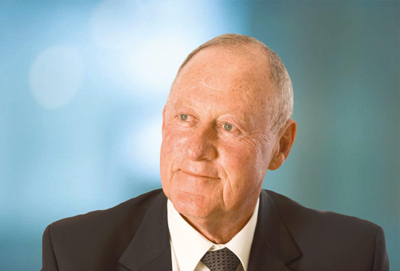The ethics of donations
No one in established democracies needs ethics training to know that providing a member of parliament with one million dollars, a Rolls Royce, rugs, antiques, furniture, yacht club fees and vacation expenses in exchange for, well, favouring a certain company, is committing bribery. But businesses can participate in the political process legitimately and legally.
In order to avoid scandal, political donations made by the powerful, rich and famous should adhere to certain dos and don’ts. Stick to the laws regulating donations and don’t be mum about it.
In the case of an emerging democracy like South Africa, political donations take on an altogether different quality. Without financial support from the mighty, opposition voices may not even get heard.
That could have been the reason why SABMiller decided to play both sides of the fence and give money to all parties taking part in the upcoming election.
On 13 March 2009, it was reported that SABMiller would give over half of the donation to the ruling African National Congress (ANC) and the official opposition, the Democratic Alliance. The rest of the donation would be split between the Inkatha Freedom Party, the United Democratic Movement, the Independent Democrats, and the Congress of the People (COPE).
This deviates from the Independent Electoral Commission’s funding formula, which sees parties receiving funds based on their representation in the National Assembly. COPE has not yet contested a general election and therefore has no seats.
Although it was only formed in December 2008 by dissidents from the ruling ANC, COPE is seen as the first real challenge to the ruling ANC.
South African media did not think SABMiller’s donation in any way unsavoury.
The same cannot be said about the ANC’s other campaign sponsors. According to the weekly newspaper “Mail & Guardian” (21 March 2009), quoting party insiders involved in fundraising, the ANC has its election effort heavily subsidised by the notorious Colonel Gaddafi of Libya, the Indian National Congress party and the Communist Party of China. Even Theodoro Obiang, the bloodthirsty dictator of oil-rich Equatorial Guinea, is said to have contributed funds.
Obviously, “the ANC has had pre-1994 ties with the Indian Congress Party and the Chinese Communist Party, but it is different when you’re a ruling party”, the Mail & Guardian wrote.
The 22 April parliamentary elections will be the most closely contested since apartheid ended in 1994.
The ANC, in power since then, is widely expected to win and make party leader Jacob Zuma president, despite a renewed graft case that has dogged him for years.
Jacob Meyer Kahn, Chairman of SABMiller, commented:
‘Great strides have been made in recent years to foster a vibrant, multi-party democracy in South Africa and SABMiller is proud to have made a contribution to that achievement. Political progress will remain vital to the country’s continued stability and growth, and for that reason we believe it continues to deserve our support.’

